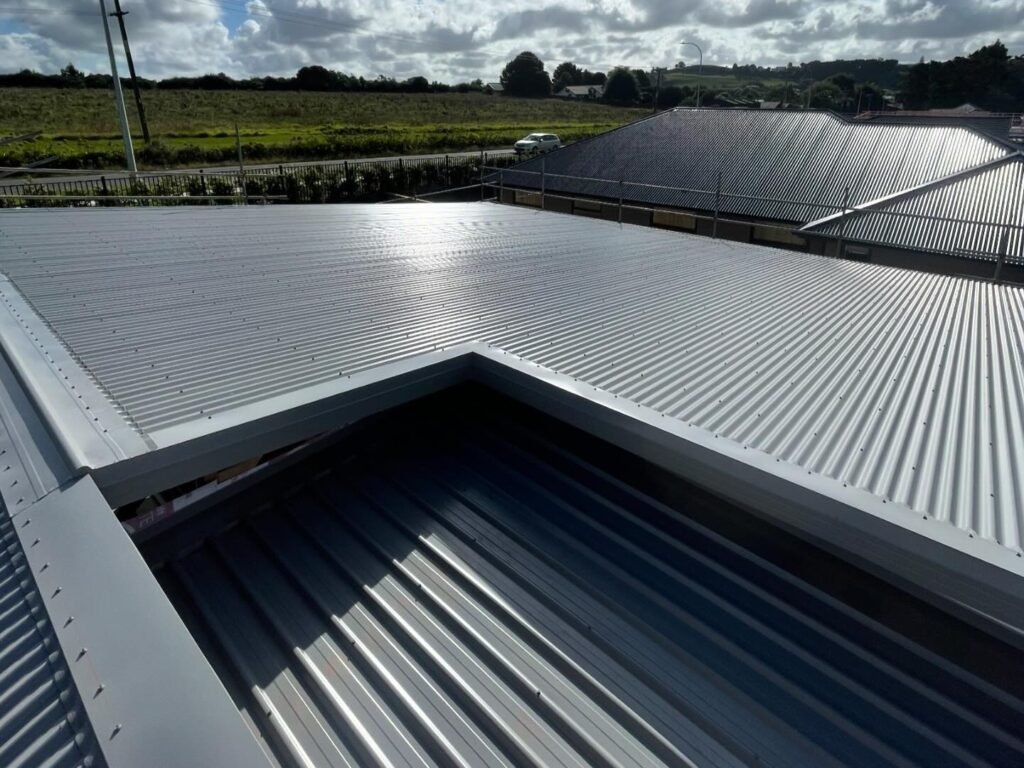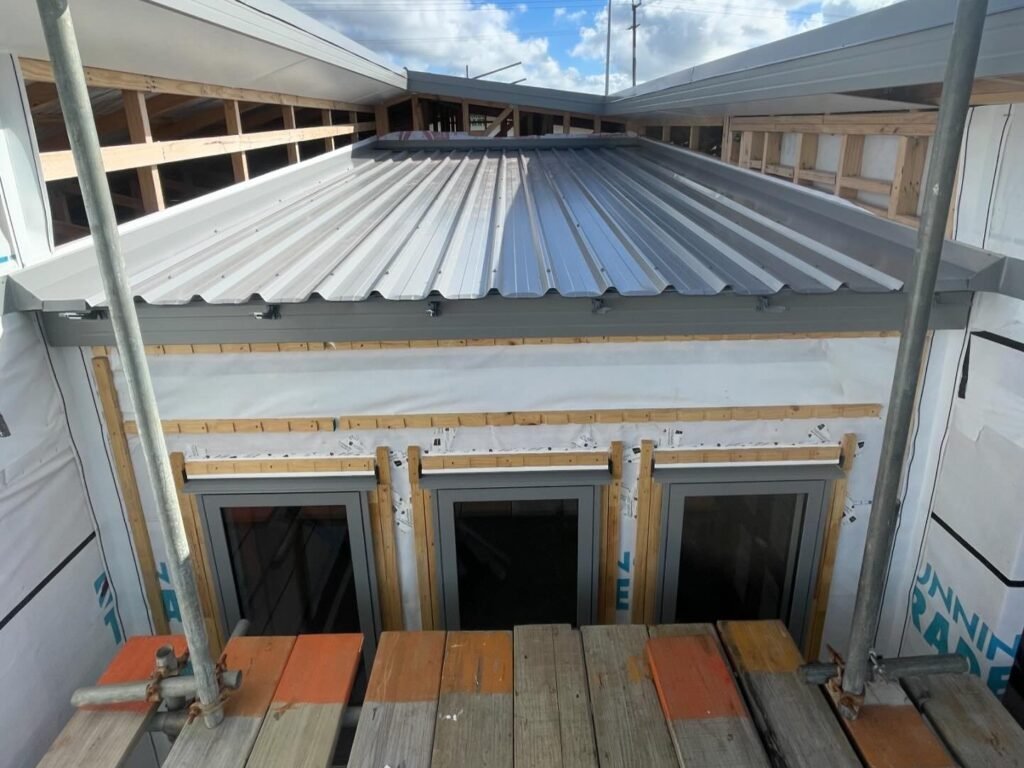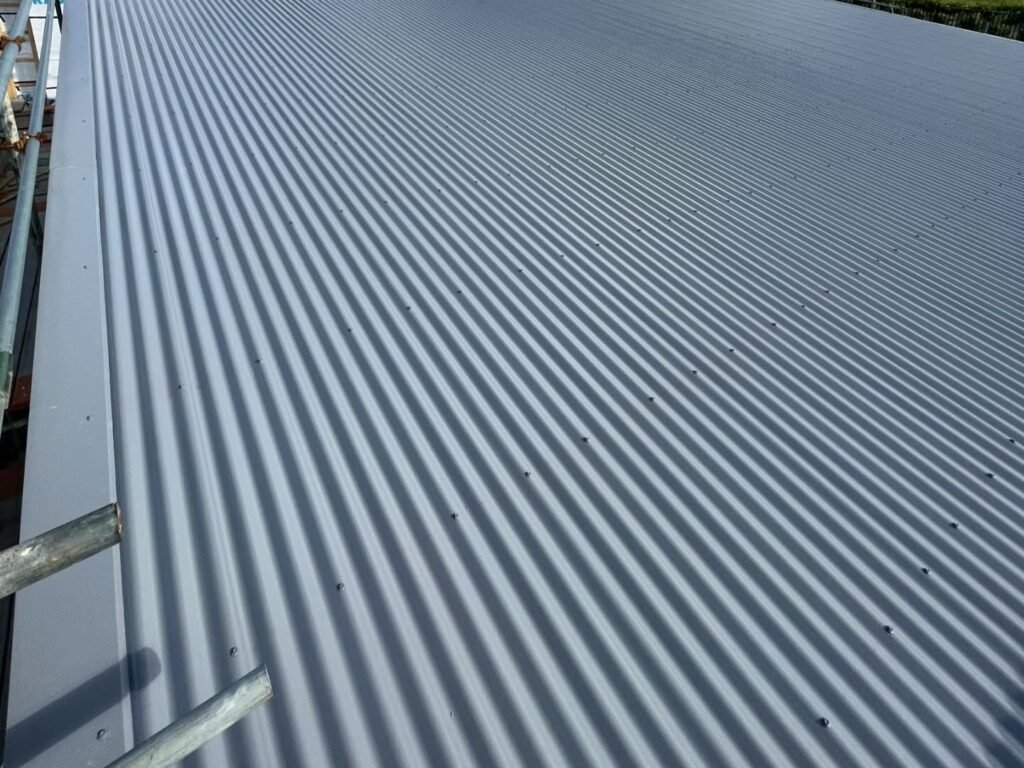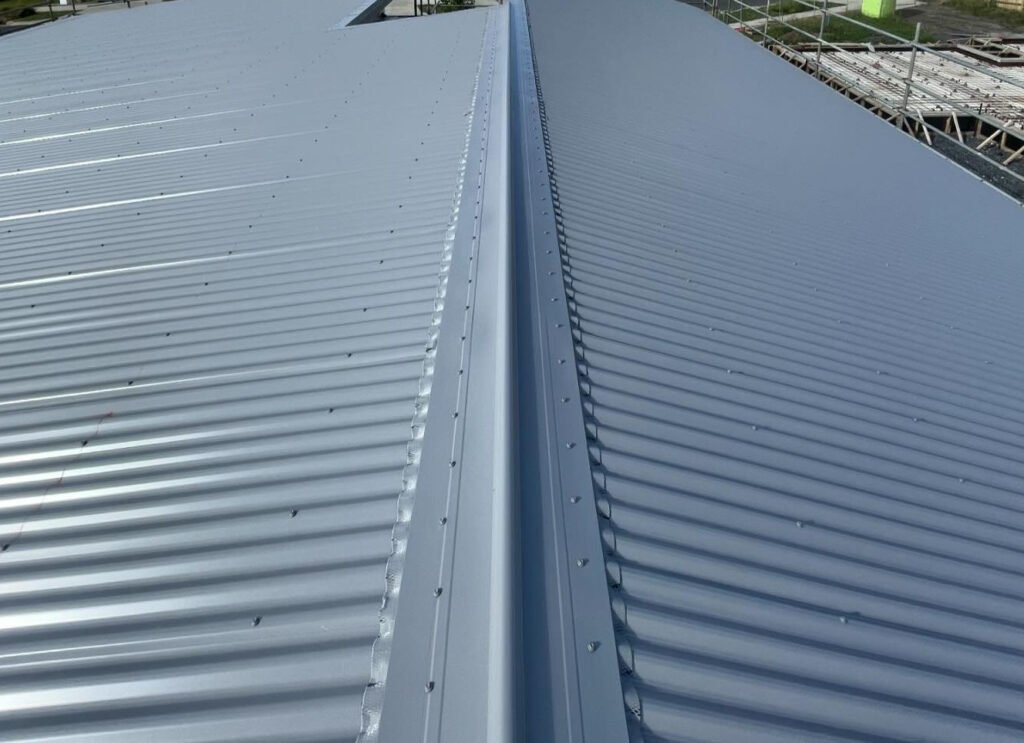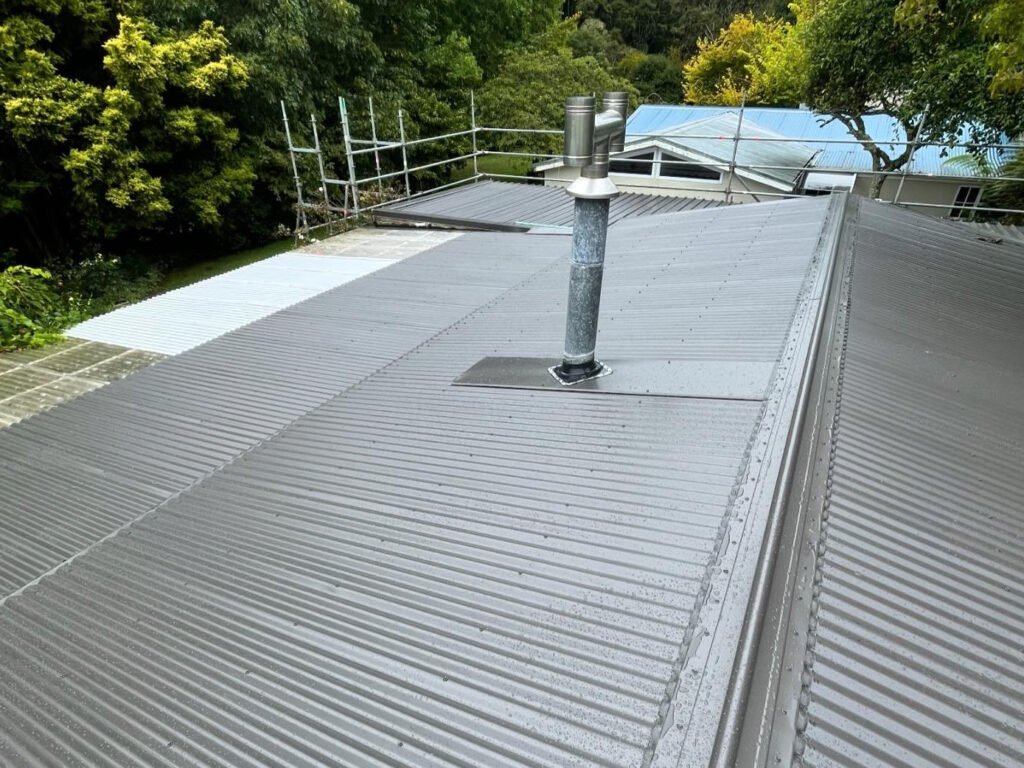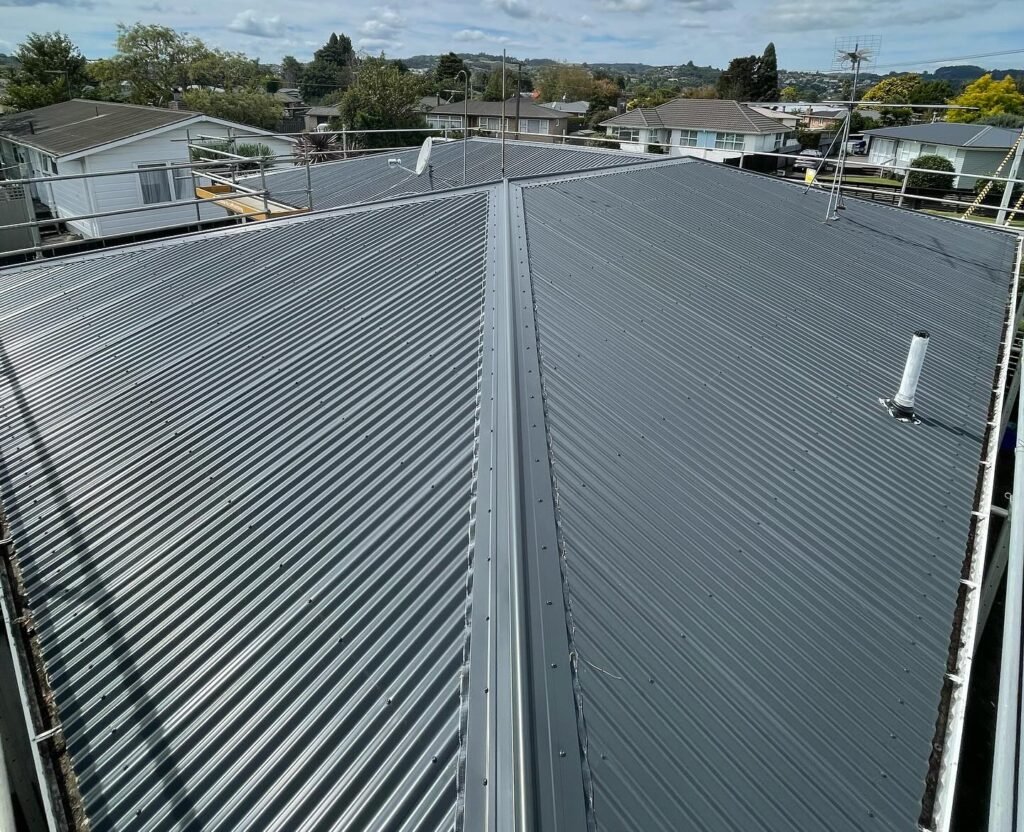When it comes to roofing, it’s important to know how much it will cost you. In the Papakura area, there are a variety of factors that can influence the cost of a new roof. From the type of material used to the size and complexity of the roof, it’s important to understand these factors before getting started.

The average cost of roofing in Papakura can vary depending on a number of factors. Typically, homeowners can expect to pay anywhere from $10,000 to $25,000 for a new roof. However, this cost can increase or decrease depending on the type of material used, the size and complexity of the roof, and other factors.
Key Takeaways
- The cost of a new roof in Papakura can vary depending on a number of factors, including the type of material used and the size and complexity of the roof.
- Labor costs in Papakura can also impact the overall cost of a new roof.
- Homeowners should also consider additional costs such as permits, warranties, and insurance when budgeting for a new roof.
Average Cost of Roofing in Papakura

The cost of roofing in Papakura can vary depending on various factors such as the size of the roof, the type of material used, and the complexity of the job. On average, the cost of roofing in Papakura can range from $10,000 to $25,000.
The most common type of roofing material used in Papakura is long-run steel. The cost of long-run steel roofing can range from $60 to $100 per square meter, depending on the thickness and quality of the steel. Other popular roofing materials used in Papakura include asphalt shingles, concrete tiles, and clay tiles, which can cost anywhere from $100 to $200 per square meter.
It is important to note that the cost of roofing in Papakura can also vary depending on the contractor you choose. It is recommended to get at least three quotes from different roofing contractors to ensure you are getting a fair price for the job.
Related Posts:
Types of Roofing Materials

Metal Roofing
Metal roofing is a popular and durable option for homeowners in Papakura. It is made of steel, aluminum, or copper and can last up to 50 years with proper maintenance. Metal roofs are resistant to fire, wind, and hail and come in a variety of colors and styles. They are also energy-efficient, reflecting the sun’s rays and reducing cooling costs.
Asphalt Shingles
Asphalt shingles are the most common roofing material in Papakura due to their affordability and ease of installation. They are made of fiberglass or organic materials and come in a range of colors and styles. Asphalt shingles are durable but have a shorter lifespan of around 20 years. They are also prone to damage from high winds and hail.
Tile Roofing
Tile roofing is a popular option for homes with a Mediterranean or Spanish style. It is made of clay or concrete and has a lifespan of up to 50 years. Tile roofs are durable and fire-resistant but can be heavy and require additional structural support. They are also more expensive than other roofing materials.
Wooden Shakes
Wooden shakes are a traditional roofing material that adds a rustic charm to homes in Papakura. They are made of cedar, redwood, or pine and have a lifespan of around 30 years with proper maintenance. Wooden shakes are energy-efficient and provide natural insulation but are prone to fire damage and require regular maintenance to prevent rot and decay.
In summary, there are several types of roofing materials available in Papakura, each with their own advantages and disadvantages. Homeowners should consider their budget, style preferences, and maintenance requirements when choosing a roofing material for their home.
Size and Complexity of Roof

Roof Size Affects Price
The size of the roof is one of the most significant factors that affect the cost of a new roof. The larger the roof, the more materials and labor will be required to complete the job. The cost per square meter of roofing material decreases as the size of the roof increases. This is because the fixed costs of labor and equipment are spread out over a larger area.
Roofing contractors typically charge per square meter for the installation of a new roof. The cost per square meter can vary depending on the type of roofing material used, but generally, the larger the roof, the lower the cost per square meter. Homeowners should keep in mind that the cost of roofing materials is only one part of the total cost of a new roof. Labor, disposal of old roofing materials, and any necessary repairs to the roof deck will also factor into the final cost.
Design Complexity and Cost
The complexity of the roof design is another factor that can significantly affect the cost of a new roof. A simple gable roof with a single slope is the easiest and least expensive type of roof to install. A more complex roof design, such as a hip roof or a roof with multiple levels, will require more labor and materials to install, increasing the overall cost of the project.
Furthermore, if the roof design requires custom flashing or other specialized components, the cost will also increase. In general, the more complex the roof design, the higher the cost of installation.
Homeowners should keep in mind that while a more complex roof design may be aesthetically pleasing, it will also come with a higher price tag. It is important to balance the desired design with the budget available.
In summary, the size and complexity of the roof are two significant factors that affect the cost of a new roof. Homeowners should carefully consider these factors when planning a new roof installation to ensure they are getting the best value for their investment.
Labor Costs in Papakura

When it comes to roofing, labor costs can be a significant portion of the total cost. In Papakura, the cost of labor for roof installation can vary depending on the type of roofing material, the size of the roof, and the complexity of the job.
Professional Installation Fees
Hiring a professional roofing contractor in Papakura can be a wise investment as they have the expertise and experience to ensure a quality installation. The cost of professional installation in Papakura can range from $70 to $120 per hour. On average, a professional roofing contractor can install a new roof in Papakura for around $10,000 to $20,000, depending on the size and complexity of the job.
DIY Installation Savings
For those who are handy and have experience with roofing, DIY installation can be a cost-saving option. However, it is important to note that DIY installation can be time-consuming and may require additional tools and equipment. The cost of DIY installation in Papakura can range from $2,000 to $10,000, depending on the size and complexity of the job.
Overall, the cost of labor for roofing in Papakura can vary depending on several factors. It is important to consider the benefits of hiring a professional roofing contractor versus the cost savings of DIY installation when making a decision.
Roofing Permits and Regulations

Council Permits
Before starting any roofing project in Papakura, it is important to check with the local council whether a permit is required. A permit is usually necessary for any roofing work that involves structural changes or alterations to the existing roof. This includes the installation of a new roof, re-roofing, and repairs that involve significant changes to the roof’s structure.
The council may also require a permit if the roofing work is likely to affect the drainage or water flow from the roof. It is the responsibility of the homeowner or the roofing contractor to obtain the necessary permits before starting the work.
Building Code Requirements
Roofing work in Papakura must comply with the New Zealand Building Code. The code sets out the minimum standards for the design and construction of buildings, including roofing systems. Some of the key requirements of the building code that relate to roofing include:
- Roof pitch: The minimum pitch for a roof depends on the roofing material used. For example, a minimum pitch of 15 degrees is required for steel roofing, while a minimum pitch of 20 degrees is required for concrete or clay tiles.
- Roofing materials: The building code sets out requirements for the quality and durability of roofing materials. Roofing materials must be able to withstand the local climate and weather conditions.
- Flashings: Flashings are used to seal the joints between the roof and other parts of the building, such as chimneys, walls, and windows. The building code sets out requirements for the design and installation of flashings to ensure they are watertight.
By complying with the building code requirements, homeowners can ensure that their roofing work is safe, durable, and meets the minimum standards set out by the New Zealand government.
Additional Roofing Costs

When it comes to roofing costs in Papakura, there are several additional expenses that homeowners should be aware of. These costs can significantly impact the overall price of a new roof or roof repair project.
Gutter Installation
One of the most important additional costs to consider is gutter installation. Gutters are an essential part of any roofing system, as they help to direct rainwater away from the roof and foundation of the home. Without gutters, water can accumulate on the roof and cause damage over time.
The cost of gutter installation can vary depending on several factors, including the size of the home, the type of gutter system, and the complexity of the installation. On average, homeowners can expect to pay between $1,000 and $2,500 for gutter installation in Papakura.
Roof Insulation
Another important additional cost to consider is roof insulation. Insulation helps to regulate the temperature inside the home and can significantly improve energy efficiency. Without proper insulation, homes can lose a significant amount of heat in the winter and become too hot in the summer.
The cost of roof insulation can vary depending on the size of the home and the type of insulation used. On average, homeowners can expect to pay between $1,500 and $3,000 for roof insulation in Papakura.
Structural Repairs
Finally, homeowners should also consider the cost of any necessary structural repairs when getting a new roof or roof repair. Structural damage can occur over time due to weather or other factors, and it is important to address these issues before installing a new roof.
The cost of structural repairs can vary depending on the extent of the damage and the complexity of the repairs. On average, homeowners can expect to pay between $500 and $5,000 for structural repairs in Papakura.
Overall, it is important for homeowners to consider these additional costs when budgeting for a new roof or roof repair in Papakura. By taking these expenses into account, homeowners can ensure that they are getting a comprehensive and accurate estimate for their roofing project.
Roofing Warranties and Insurance

Manufacturer’s Warranty
When it comes to roofing warranties, it is important to understand the manufacturer’s warranty. This warranty covers any defects in the materials used to build the roof. The length of the warranty varies depending on the manufacturer and the type of roofing material used.
It is important to note that the manufacturer’s warranty does not cover any issues caused by poor installation or maintenance. Therefore, it is essential to hire a reputable roofing contractor who can provide a workmanship warranty.
Workmanship Warranty
A workmanship warranty is provided by the roofing contractor and covers any issues caused by poor installation or maintenance. The length of the warranty varies depending on the contractor and the type of work performed.
It is important to choose a contractor who provides a workmanship warranty to ensure that any issues that arise due to poor installation or maintenance are covered.
Roofing Insurance Considerations
Roofing insurance is another important consideration when it comes to the cost of a roof. Homeowners insurance typically covers damage caused by natural disasters, such as hail or wind damage. However, it is important to review the policy to ensure that it covers all types of damage.
It is also important to note that insurance may not cover damage caused by poor installation or maintenance. Therefore, it is essential to hire a reputable roofing contractor who can provide a workmanship warranty to ensure that any issues that arise due to poor installation or maintenance are covered.
In summary, understanding the manufacturer’s warranty, workmanship warranty, and roofing insurance considerations are important when it comes to the cost of a roof. Homeowners should choose a reputable roofing contractor who provides a workmanship warranty and review their insurance policy to ensure that it covers all types of damage.
Seasonal and Weather-Related Factors

Seasonal Price Variations
The cost of roofing in Papakura can vary depending on the season. During the peak roofing season, which is typically from spring to fall, the demand for roofing services is high. As a result, roofing contractors may charge higher prices due to the increased demand. On the other hand, during the off-season, which is typically from winter to early spring, roofing contractors may offer lower prices to attract customers.
Weather Impact on Costs
The weather can also impact the cost of roofing in Papakura. Extreme weather conditions, such as heavy rain, strong winds, and hailstorms, can damage roofs and require repairs or replacements. In such cases, roofing contractors may charge higher prices due to the additional work required to repair or replace the damaged roofs.
Moreover, extreme weather conditions can also delay roofing projects, which can result in additional costs for both the contractor and the homeowner. For instance, if a roofing project is delayed due to bad weather, the contractor may need to pay their workers for additional days, which can increase the overall cost of the project.
In conclusion, seasonal and weather-related factors can impact the cost of roofing in Papakura. Homeowners should consider these factors when planning for a roofing project and consult with a reputable roofing contractor to get an accurate estimate of the costs involved.
Discounts and Deals

Bulk Material Discounts
When it comes to roofing, buying in bulk can save you a considerable amount of money. Many roofing companies offer discounts for bulk purchases of roofing materials. These discounts can vary depending on the quantity of materials purchased, but they can add up to significant savings.
For instance, if you’re planning to replace your roof, you can save money by purchasing all the necessary materials at once. This can include shingles, underlayment, flashing, and other roofing materials. By buying in bulk, you can save up to 10% or more on the total cost of your roofing project.
Off-Season Discounts
Roofing companies are typically busiest during the summer months when the weather is warm and dry. During the off-season, which is usually from November to March, roofing companies tend to have fewer projects. This means they may offer discounts to attract customers during the slow season.
If you’re planning to replace your roof, consider scheduling the work during the off-season. You may be able to take advantage of discounts and save money on your roofing project. However, keep in mind that the weather conditions during the off-season may not be ideal for roofing work. It’s important to consult with a professional roofing contractor to determine the best time to replace your roof.
Overall, discounts and deals can help you save money on your roofing project. By buying in bulk and scheduling work during the off-season, you can take advantage of these savings and get the best value for your money.
Cost Comparison with Nearby Areas

Papakura vs. Auckland
When it comes to roofing prices, Papakura is relatively affordable compared to Auckland. The average cost of a new roof installation in Papakura is around $10,000 to $15,000, while in Auckland, it can cost anywhere from $15,000 to $25,000. The price difference can be attributed to the higher cost of living and the competitive market in Auckland.
Regional Price Variations
Within the Papakura region, there may be some variations in roofing prices depending on the specific location. For example, properties located in the city center may have higher prices due to the higher demand. On the other hand, properties in rural areas may have lower prices due to the lower cost of living.
It is important to note that the cost of roofing also depends on various factors such as the size of the roof, the type of material used, and the complexity of the installation. Homeowners should always obtain quotes from multiple roofing contractors and compare prices before making a final decision.
Overall, while roofing prices in Papakura may vary depending on the specific location and other factors, it remains a relatively affordable option compared to other nearby areas such as Auckland.
Long-Term Investment and ROI

When considering the cost of a new roof, it’s important to also consider the long-term investment and potential return on investment (ROI). A new roof can provide a variety of benefits that can impact energy efficiency savings and resale value.
Energy Efficiency Savings
One of the most significant benefits of a new roof is the potential for energy efficiency savings. A new roof can help to regulate the temperature inside the home, reducing the need for heating and cooling systems to work harder to maintain a comfortable living environment. This can result in lower energy bills and long-term savings.
Homeowners can also consider installing energy-efficient roofing materials, such as reflective shingles or a cool roof coating. These materials can help to reflect sunlight and reduce the amount of heat absorbed by the roof, further reducing the need for air conditioning and potentially saving even more on energy bills.
Resale Value Impact
A new roof can also have a positive impact on the resale value of a home. A well-maintained and attractive roof can increase the curb appeal of a property, making it more appealing to potential buyers. Additionally, a new roof can provide peace of mind to buyers, as they won’t have to worry about the cost of a new roof in the near future.
According to a recent study by Remodeling Magazine, a new roof can provide a return on investment of up to 68%. This means that homeowners can potentially recoup a significant portion of the cost of a new roof when they sell their home.
Overall, a new roof can be a worthwhile investment for homeowners in Papakura. By considering the potential energy efficiency savings and resale value impact, homeowners can make an informed decision about whether a new roof is the right choice for their property.
Frequently Asked Questions

What is the typical cost range for replacing a roof in Papakura?
The cost of replacing a roof in Papakura can vary depending on several factors such as the size of the roof, the type of materials used, and the complexity of the installation. However, on average, the cost of replacing a roof in Papakura can range between $10,000 to $30,000.
How is the cost of Coloursteel roofing determined in New Zealand?
The cost of Coloursteel roofing in New Zealand is determined by the size of the roof, the type of Coloursteel product used, and the complexity of the installation. The cost can also vary depending on the location of the property and the availability of roofing contractors in the area.
What factors contribute to the overall expense of a new roof in Auckland?
The overall expense of a new roof in Auckland can be influenced by several factors such as the size of the roof, the type of materials used, the complexity of the installation, and the location of the property. Other factors such as the cost of labor and the availability of roofing contractors in the area can also contribute to the overall expense.
Can you provide an estimate for roofing costs per square meter in New Zealand?
The cost of roofing per square meter in New Zealand can vary depending on the type of materials used and the complexity of the installation. However, on average, the cost can range between $80 to $120 per square meter.
What are the expected costs for roof recoating in New Zealand?
The expected cost for roof recoating in New Zealand can vary depending on the size of the roof, the type of coating used, and the complexity of the installation. However, on average, the cost can range between $2,500 to $5,000.
Which components tend to drive up the cost of roof installation the most?
The components that tend to drive up the cost of roof installation the most are the type of materials used, the complexity of the installation, and the cost of labor. Other factors such as the location of the property and the availability of roofing contractors in the area can also contribute to the overall cost.


